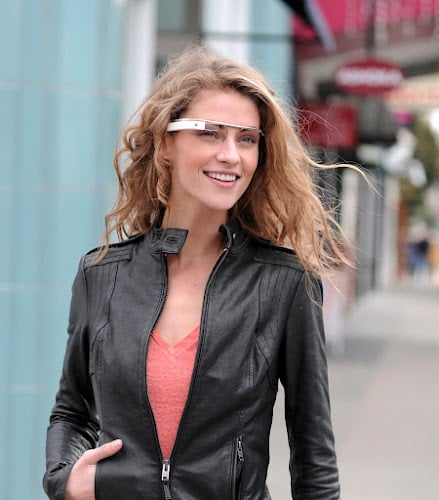
April 6, 2012
Unintended Consequences
Google’s Project Glass caught my eye while reading the New York Times. These augmented reality glasses that promise to display maps, charts, and other visuals right in front of our eyes, are one more piece of seductive technology. Before we buy in, we need to consider the social and design issues raised by such terrifically […]
Google’s Project Glass caught my eye while reading the New York Times. These augmented reality glasses that promise to display maps, charts, and other visuals right in front of our eyes, are one more piece of seductive technology. Before we buy in, we need to consider the social and design issues raised by such terrifically exciting innovations.
When we ran out and bought iPod Touches for our kids, we didn’t consider the difficulties these devices would create in carrying on focused conversations. Neither did we think of how these highly appealing objects would act on the long-term unintended impacts on the kids’ emotional and physical development. Similarly, I’m seeing a lessening in quality of conversation in day to day interactions in business and out in public with so many of us multi-tasking on some device or another. So given these recent experiences what are my larger concerns with Project Glass?
The unintended consequences of glass wear computing technology will add one more layer of distance between people, a distance that is now growing into a chasm as we’re increasingly surrounded by friends, family, and co-workers staring into smart phones, tablets, iPads… Now, imagine trying to talk to a person wearing heads-up glass displays. Even if we’re facing each other, are we really “there” or just kinda “there”?
Are we stepping closer to being intelligent machines and moving away from our basic humanity? Our intrinsic value lies in the questions we ask and our ability to think critically and reflect on and use the information before us on the heads up screen. And so we must ask, are we being clear about why and how this technology can better humankind? Or are we simply caught up in the hype for another cool, next, killer, smart gadget?
I implore you, the individuals behind Project Glass, to please take care and focus on answering the larger questions. Show us what your field research reveals about how these glasses can help further our abilities to communicate and understand one another, solve tough problems that require face-to-face human interaction, such as poverty, famine, and climate change to name a few. Then I’ll get really excited about your product!
Stephen M. Frey, AIA, LEED AP, is owner, architect, and chief design catalyst at Arocordis Design located in Montpelier, VT. He practices high performance workplace and residential design. You can find more about what he’s thinking about innovation, green, technology, on his blog www.designcultivation.blogspot.com and UpWorld Blog. Or contact him at [email protected]






